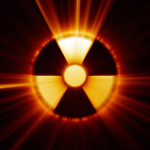House Subcommittee Holds Hearing on Medical Radiation Benefits, Risks
by
Astrid Fiano, DOTmed News Writer | March 02, 2010

Read the hearing highlights
The U.S. House of Representatives Committee on Energy and Commerce, Subcommittee on Health, held a hearing Thursday entitled "Medical Radiation: An Overview of the Issues" to examine the potential benefits and risks of the use of radiation in medicine. The hearing follows much concern in the health care industry of late regarding the risks of excess use of radiation. (See, as example, DM 11659, 11618, 11611, 11547, 11545, 11413.)
"Let me be clear at the outset: Diagnostic technologies like CT scans that identify tumors and therapeutic procedures, such as radioactive seeds to treat prostate cancer, are potentially lifesaving," Committee Chair Henry Waxman (D-CA) said in his opening statement. "They are important interventions in our medical toolbox, and our health care system is unquestionably much better for them. But recent reports and studies have raised questions about the relative safety of these technologies." Rep. Waxman then recounted several examples in the news of patients being exposed to excess radiation, including patients who received excess radiation during brain scans at Cedars Sinai Hospital in Los Angeles (see, DM 10525).
Committee Chair Frank Pallone, Jr. (D-NJ) also expressed appreciation of the numerous benefits of medical radiation, but added, "A procedure with such a small margin of error should be stringently overseen and monitored, but these critical steps appear to be sorely lacking. With all the advancements the industry has made, these technologies have become more complex and complicated to operate. It is shocking to me that in many states individuals who operate these devices do not need to be licensed and are therefore not regulated at all in terms of education and expertise. Even in states where there are licensing requirements, the requirements to report errors and the penalties for making errors are basically non-existent or not enforced. As a result, we have no idea how often these errors occur and have no good data on where the weaknesses in the system truly are."
Rep. Pallone went on to say that the problem includes the fact that no single agency has authority over all issues related to medical radiation and that there is very little guidance to physicians on the appropriateness of use, especially in radiation dosage and life-time exposure of radiation.
In the first panel of witnesses, James Parks described the horrifying death of his adult son after overexposure to radiation. Parks said he and his wife, both health care professionals, had the following suggestions: First, that the U.S. develop a strong mandatory database and require all medical facilities to report all serious medical accidents, and give authority to force compliance or face penalties of fines and imprisonment. Second, that medical equipment manufactures of radiological machines develop fail-safe interactive expert systems that interact with human technicians to reduce, or eliminate human errors, and the equipment never be operated by persons not fully trained and qualified.
